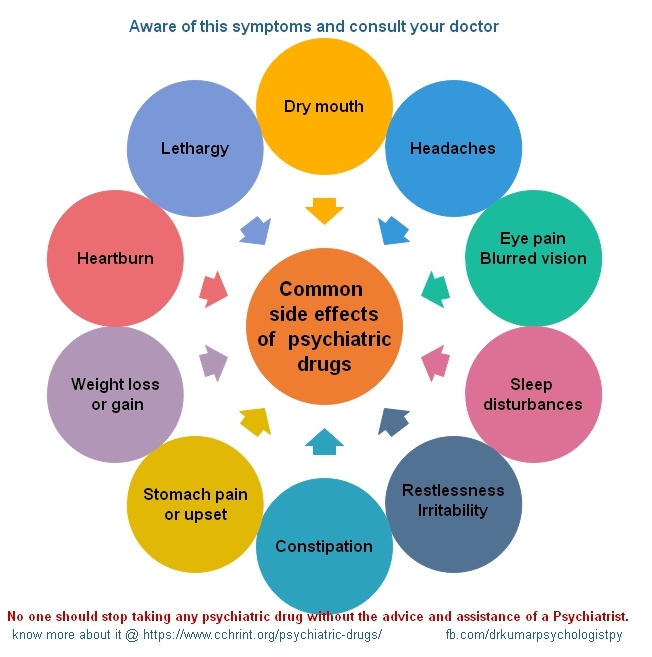Side effects of medications used for psychiatric disorders treatment
Apr 11, 2023
This paper explores the side effects associated with the use of medications for treating psychiatric disorders. The most commonly prescribed classes of medication are antidepressants, antipsychotics, and mood stabilizers.
Common side effects associated with antidepressants include: dry mouth, drowsiness, insomnia, fatigue, headaches, nausea or vomiting, sexual dysfunction, changes in appetite or weight gain/loss. Antipsychotic medications are also known to cause adverse reactions such as drowsiness or sedation, blurred vision, dizziness, tremors or shaking movements in the body, restlessness and akathisia (inability to sit still), increased risk of high blood pressure and diabetes. Mood stabilizers may lead to some serious side effects including rash and other allergic reactions; liver problems; pancreatitis; kidney stones; sedation and low blood sodium levels.
It is important for individuals to be mindful of these potential side effects when taking medications for treating mental health conditions as they can have a significant impact on quality of life. It is also essential that patients consult with their doctor or healthcare provider regularly in order to monitor any adverse reactions. Medication adjustments may be necessary to alleviate or reduce the intensity of certain symptoms.

Overall, while medication can provide relief from the symptoms associated with psychiatric disorders, it is important to be aware of the potential risks involved and always talk with a medical professional before making any changes in dosage or discontinuing use altogether.
Furthermore, it is good practice to keep a log of any side effects experienced, as this can be helpful for physicians in understanding the individual’s response to medication. This can assist in making adjustments and ensuring that treatment is as effective and safe as possible.
In conclusion, medications have the potential to improve quality of life by providing relief from psychiatric disorder symptoms while managing any associated side effects. It is important to consult with a doctor or other healthcare provider before taking or changing medications in order to ensure safety and effectiveness. Keeping a log of side effects experienced can also prove beneficial in determining the best course of action for treatment.
